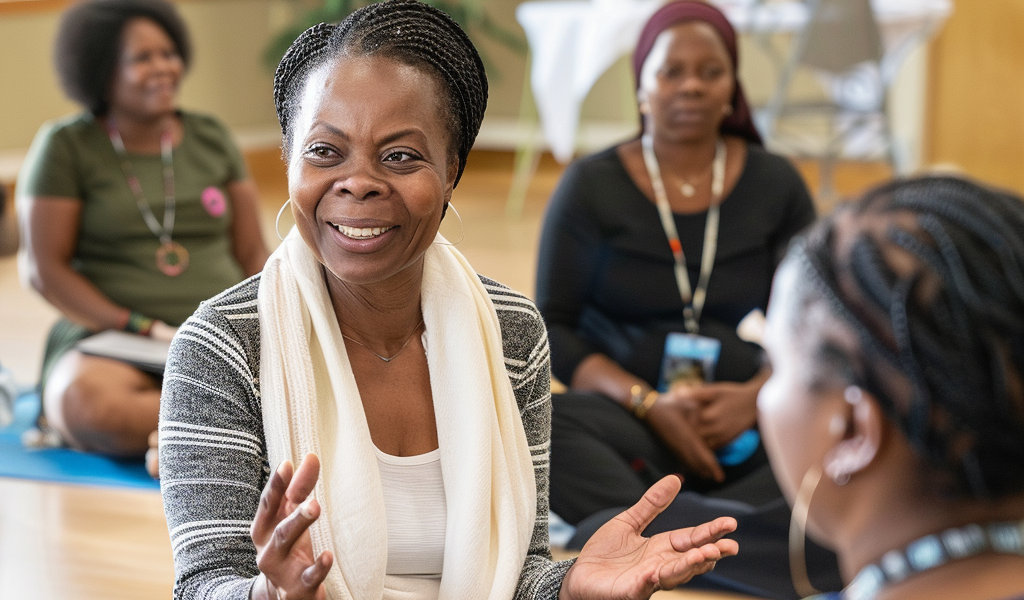Groundbreaking Study Reveals Challenges Faced by Midlife Women in British Columbia
VANCOUVER, BC – A pioneering study has unveiled critical insights into the health and economic challenges faced by midlife women in British Columbia, particularly in relation to menopause. Conducted by the Women’s Health Research Institute (WHRI) in collaboration with the BC Women’s Health Foundation and Pacific Blue Cross, this comprehensive research marks the first time such extensive data has been gathered on the impacts of menopause symptoms in this demographic.
Launched on November 1, 2024, the study titled HER-BC: Health and Economics Research on Midlife Women in British Columbia delves into the experiences of women undergoing perimenopause, menopause, and post-menopause. The research highlights the multifaceted effects of this life stage, which encompasses physical, mental, social, and economic dimensions.
Surveying over 2,000 women aged between 39 and 60 from various regions of the province, the study also included in-depth interviews with a select group. The findings emphasize the need for improved health care services, more inclusive workplace policies, and further research aimed at supporting the approximately 875,000 women aged 40 to 65 living in British Columbia.
Key Findings from the HER-BC Study
- Workplace Impact: The study revealed that 32% of respondents reported that menopause symptoms adversely affected their job performance. Alarmingly, 24% indicated they had missed workdays in the past year due to these symptoms. Furthermore, nearly 10% (9.4%) had declined job promotions or career advancements because of menopause-related issues, and some even faced termination as a result.
- Health Care Gaps: A significant 43.5% of participants sought help from extended health care providers, including naturopaths and mental health professionals. On average, these women spent nearly $900 out-of-pocket annually on such services. Notably, those with private health insurance were more likely to access these services and incurred lower out-of-pocket expenses. Approximately 75% of women who utilized extended health care reported an improvement in their symptoms.
- Mental Health Challenges: The study found that 41.2% of respondents experienced mental health issues related to menopause, highlighting the urgent need for mental health support tailored to this demographic.
The findings of this study are particularly relevant in light of the growing recognition of menopause as a significant health issue that warrants attention from both health care providers and employers. The research advocates for a shift in workplace policies to accommodate the needs of midlife women, ensuring they receive the support necessary to thrive both personally and professionally.
Recommendations for Improved Support
Based on the study’s findings, researchers have outlined several recommendations aimed at enhancing health care support and workplace policies for midlife women:
- Implementing training programs for health care providers to better understand menopause and its symptoms, ensuring that women receive appropriate care.
- Encouraging workplaces to develop flexible policies that accommodate the unique challenges faced by women during menopause, such as flexible hours or remote work options.
- Increasing awareness and education about menopause in the workplace to foster a more supportive environment for women experiencing symptoms.
- Advocating for further research into menopause to fill existing knowledge gaps and inform health care practices and policies.
The HER-BC study serves as a crucial step in addressing the challenges faced by midlife women in British Columbia. By shedding light on the profound impacts of menopause, the research aims to drive change in health care and workplace policies, ultimately improving the quality of life for women in this pivotal stage of life.
As discussions surrounding women’s health continue to evolve, the insights from this study underscore the importance of recognizing and addressing the unique challenges faced by midlife women, paving the way for a more inclusive and supportive future.





